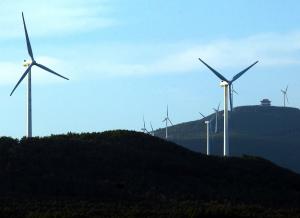May 23 (UPI) — There is no economic excuse for backing away from efforts to advance a low-carbon economy through collaborative efforts, the head of the OECD said from Berlin.
The Organization for Economic Cooperation and Development said in a report published Tuesday the net impact from pro-climate policies for the Group of 20 industrialized economies would be a gain of about 1 percent for gross domestic production by 2021. If the efforts to avoid climate change result in a reduction of damage like coastal flooding, the OECD said the net gain would be about 5 percent for global GDP by 2050.
In an era where nationalism is an emerging political trend, the OECD said cooperation across borders would help advance the low-carbon initiatives outlined in the global Paris climate agreement.
The G20 countries account for 85 percent of global GDP and 80 percent of the emissions of carbon dioxide, a harmful greenhouse gas. Combined and proactive policies could help offset some of the early economic strains of a greener economy.
“Far from being a dampener on growth, integrating climate action into growth policies can have a positive economic impact,” OECD Secretary-General Angel Gurría said in a statement from Berlin. “There is no economic excuse for not acting on climate change, and the urgency to act is high.”
Germany has one of the greener economies in Europe, though emissions tied to fossil fuels posted a slight increase earlier this year. The country accounts for nearly 23 percent of the emissions tied to fossil fuels in Europe.
For Pacific economies, an annual review of the New Zealand energy sector from the International Energy Agency described the country as a “success story” for its ability to advance on low-carbon options like hydroelectric power and geothermal energy, all without government subsidies. New Zealand Energy Minister Judith Collins said, however, that meant technologies like solar power weren’t attractive on economic and efficiency terms.
In the United States, President Donald Trump has enacted pro-energy policies that favor fossil fuels as a way to encourage economic growth. Scott Pruitt, the head of the Environmental Protection Agency, said this week it was coal that offered a pro-environment and pro-growth option for the largest economy in the world.
“The war on coal is over,” he said in a statement.

COMMENTS
Please let us know if you're having issues with commenting.